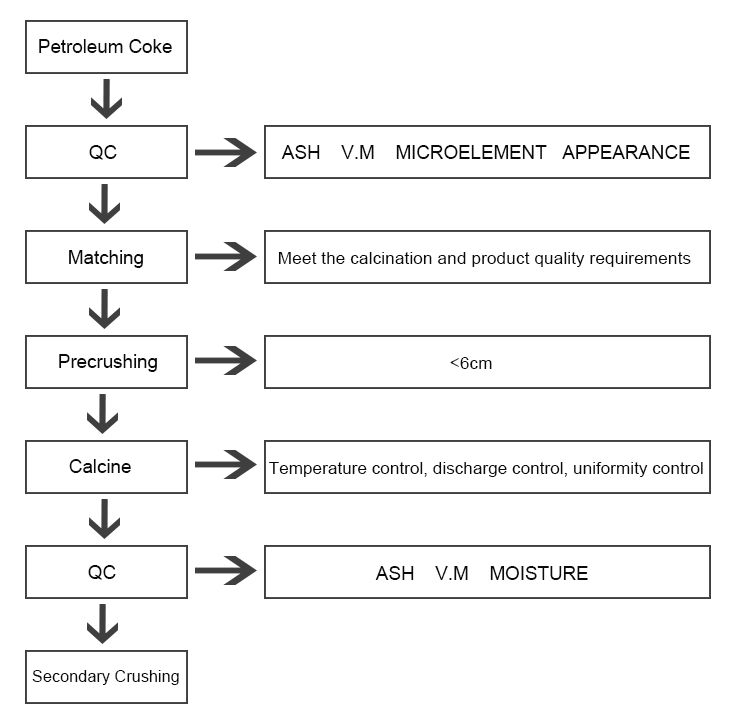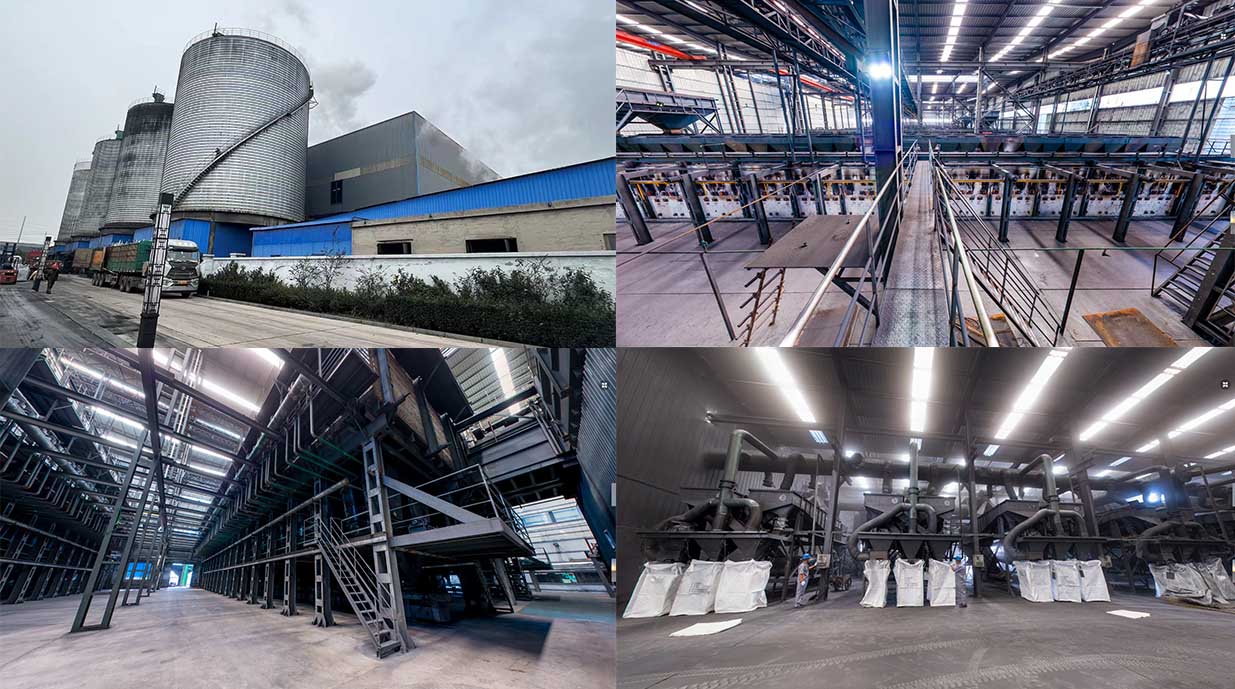Calcined Coke For Aluminum
Calcined coke, also known as petroleum coke, has various applications in different fields and industries. Here are some common applications:
Aluminum Production: Calcined coke is extensively used in the production of anodes for aluminum smelting. Anodes made from calcined coke act as conductors of electricity and help in the electrolytic process of extracting aluminum from alumina.
Steel Production: Calcined coke is used as a carbon additive in the production of steel. It helps improve the carbon content and provides heat during the steelmaking process. Calcined coke is commonly added to the furnace charge or used as a recarburizer in the ladle metallurgical process.
Titanium Dioxide Production: Calcined coke is used in the production of titanium dioxide (TiO2), which is a pigment used in various applications, including paints, coatings, plastics, and paper. Calcined coke provides carbon and energy during the chloride process of TiO2 production.
Carbon Electrodes: Calcined coke is a vital ingredient in the manufacturing of carbon electrodes used in electric arc furnaces. These electrodes are used for melting metals and alloys and are crucial in the steel, aluminum, and ferroalloy industries.
Fuel Source: Calcined coke can be utilized as a fuel source in certain industries, including cement manufacturing, power generation, and other high-heat applications. Its high carbon content and calorific value make it an efficient and cost-effective alternative to traditional fossil fuels like coal.
Foundry and Refractory Applications: Calcined coke is used in the foundry industry as a carbon additive for casting molds. It helps in achieving the desired carbon content and improves the overall casting quality. Additionally, in refractory applications, calcined coke can be used as a component in the production of refractory bricks and linings due to its high carbon and heat resistance properties.
Chemical and Petrochemical Industries: Calcined coke finds applications in various chemical and petrochemical processes. It can be used as a feedstock in the production of carbon-based chemicals, as a fuel source in certain chemical reactions, or as an additive to enhance the properties of certain chemical compounds.
These are just a few examples of the applications of calcined coke. The versatility of this material and its high carbon content make it a valuable resource in industries where carbon and heat are essential.
Advantage to using Calcined Petroleum Coke in prebaked anode
Calcined coke is a critical ingredient in the production of aluminum through the Hall-Héroult process, which is the primary method for producing aluminum globally. The process involves electrolyzing alumina (aluminum oxide) dissolved in molten cryolite, a mineral-based electrolyte. Here are some of the key benefits of using calcined coke in the production of aluminum:
Reducing energy consumption: Calcined coke serves as an anode in the electrolysis process. During electrolysis, the anode undergoes oxidation, releasing electrons that generate the necessary electric current for the process. Calcined coke has a relatively low electrical resistivity compared to other materials, making it an efficient choice for anodes. This results in lower energy consumption during the electrolysis process, which is crucial for maintaining the cost-effectiveness of aluminum production.
High carbon content: Calcined coke is produced by heating raw petroleum coke to high temperatures, which drives off volatile matter and increases the carbon content. The high carbon content of calcined coke enhances its electrical conductivity, ensuring a stable and consistent flow of current during electrolysis. This property is essential for maintaining the efficiency of the aluminum production process.
Good structural integrity: The manufacturing process of calcined coke ensures that it has sufficient mechanical strength and structural integrity to withstand the harsh operating conditions within the aluminum production cells. The anodes must maintain their shape and withstand high temperatures, chemical reactions, and the corrosive environment during electrolysis. Calcined coke's robustness ensures a longer operational life for the anodes, reducing downtime and replacement costs.
Low impurity content: Calcined coke has low levels of impurities, particularly sulfur and metals. These impurities can adversely affect the aluminum production process by contaminating the molten aluminum or interfering with the electrolysis reaction. Using high-quality calcined coke helps maintain the purity of the aluminum produced, leading to better-quality final products.
Consistent performance: The manufacturing process for calcined coke is highly controlled, leading to a product with consistent properties. This predictability allows aluminum producers to optimize their production processes, ensuring stable and reliable output.
Environmental considerations: The use of calcined coke in aluminum production can lead to reduced greenhouse gas emissions when compared to alternative anode materials, such as coal tar pitch. This is due to the lower carbon content of calcined coke and its higher availability from petroleum refining processes.
In summary, calcined coke plays a vital role in the production of aluminum by serving as an efficient anode material. Its low impurity content, high carbon content, structural integrity, and consistent performance make it an essential component in the Hall-Héroult process, enabling the production of high-quality aluminum while minimizing energy consumption and environmental impact.










